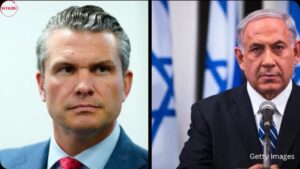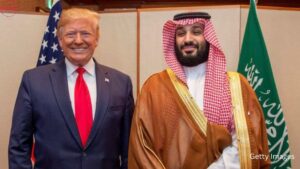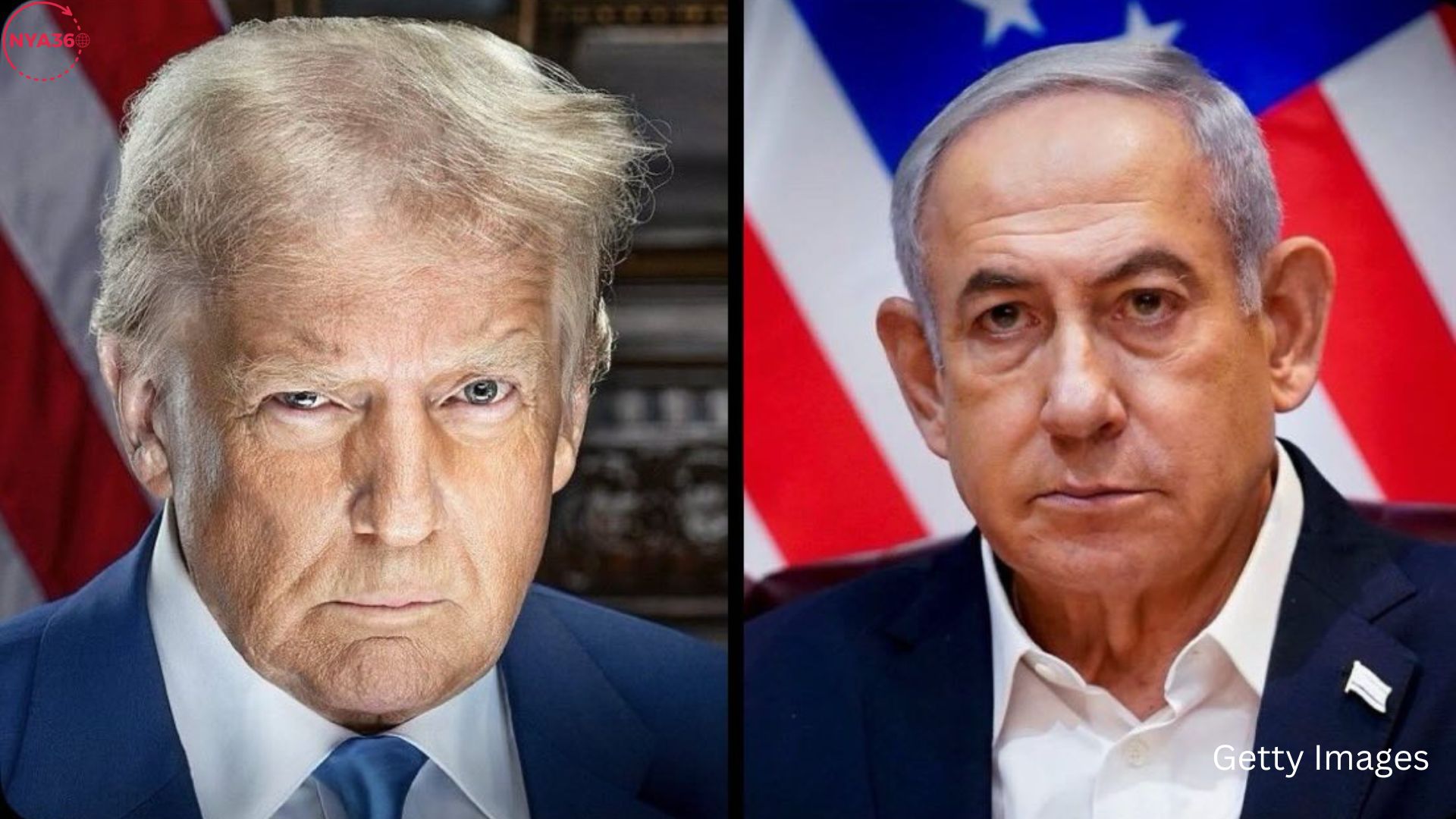U.S. President Donald Trump, reportedly “cut contact” with Israeli Prime Minister Benjamin Netanyahu, according to Israeli Army Radio (IDF Radio), signaling a dramatic change in American Middle Eastern foreign policy. The two long-time allies are reportedly at odds over Trump’s accusations of hubris and manipulation directed towards Netanyahu and his inner circle, which has added fuel to the fire.
A public schism has opened up between Trump and Netanyahu, two politicians formerly lauded for their populist rhetoric and political harmony. The diplomatic fallout is already beginning to take form: a high-profile visit to Israel has been abruptly canceled by U.S. Secretary of Defense Pete Hegseth, a close Trump confidant, and new reports indicate that Trump is ready to approve a civilian nuclear deal with Saudi Arabia without mandating that it normalize relations with Israel—a clear departure from previous Trump administration policies.
The President’s Cold Shoulder Towards Netanyahu: “Arrogance” and “Manipulation”
Reports from IDF Radio indicate that President Trump’s frustration with Netanyahu’s political maneuvering and tone in private talks has become evident. Israeli Minister of Strategic Affairs Ron Dermer was informed by sources close to the former president that Trump felt “disrespected” and “manipulated” by the prime minister of Israel. One of Trump’s aides allegedly said Dermer, “There’s nothing he hates more than appearing easily manipulated in public.”
This attitude might be the result of long-simmering animosity that began during Trump’s last months in power. Despite his landmark pro-Israel policies—such as relocating the U.S. embassy to Jerusalem and declaring Jerusalem as Israel’s capital—and his support for Israeli sovereignty over the Golan Heights, Trump has frequently hinted at feeling underappreciated by Netanyahu. But Trump reportedly thinks Netanyahu used the connection for political advantage while showing little devotion in return, according to Trump’s associates. There appears to be significant diplomatic fallout from this most recent break, which is far from being a mere verbal flourish.

Israel Visit Cancelled by Secretary Hegseth Amid Consequences
Defense Secretary Pete Hegseth of the United States abruptly postponed his trip to Israel a few days before it was supposed to take place in response to discoveries in Israeli media. The purpose of the visit was to review shared security strategies and to reinforce military cooperation, with a focus on countering Iranian aggression and integrating defenses in the region. Policymakers affiliated with Trump are recalibrating their relationship with the Netanyahu government, as indicated by the unexpected cancellation. Trump associates said the trip was canceled due to what they saw as disrespectful behavior by Israeli officials, though the official reason is still unknown.
Both Jerusalem and Washington are taken aback by the move. An ardent pro-Israeli hawk, Hegseth is both a distinguished veteran and a Trump supporter. A bigger strategic shift might be taking place if even he is pulling back.

A Radical Reversal: The Saudi Nuclear Deal Absent Israeli Normalization
Reuters has broken the shocking news that President Trump is gearing up to authorize Saudi Arabia’s long-sought civilian nuclear program—and, most importantly, he plans to do it without linking it to normalization of relations between Israel and Saudi Arabia. This would further complicate the already chaotic diplomatic situation. The Trump administration’s signature Abraham Accords approach, which linked U.S. diplomatic and security incentives to greater Israeli normalization, is drastically different from this. As part of that strategy, the US deepened its security commitments and facilitated advanced weaponry agreements with Israel in return for normalization of relations with countries like Bahrain and the United Arab Emirates.
Despite Netanyahu’s long-standing demand that rapprochement between Israel and Saudi Arabia be a condition for any such deal, Trump now seems ready to unreservedly embrace Riyadh’s nuclear ambitions. Realpolitik, rather than idealistic diplomacy, may be signaled by this approach. Trump, according to analysts, is shifting his attention away from demanding regional peace as a prerequisite and toward transactional accords that benefit key U.S. strategic goals, such as reducing Iran’s influence, counterbalancing China, and strengthening energy partnerships. “This is Trump’s America First foreign policy, version 2.0,” remarked Dr. Leila Hassan of Georgetown University, who specializes in the Middle East. “His previous stance has been drastically adjusted, and now he is placing geopolitical leverage above Israeli diplomatic sensitivities.”

Concerns about Israel’s strategic position: loss of leverage or isolation?
In Israeli policy circles, the developments have caused alarm. The stability and influence of Netanyahu’s government in the region and abroad have long been supported by the United States. Concerns that Israel may become more marginalized or excluded from crucial regional decisions have been heightened by its apparent decline in power within Trump’s inner circle and, more recently, by the decision to separate Saudi nuclear negotiations from normalization. The heads of Israel’s opposition parties have wasted no time in criticizing Netanyahu for the way he has managed relations between Israel and the United States.
“This is what happens when arrogance replaces diplomacy,” stated Yair Lapid, leader of the moderate Yesh Atid party…. Due to governmental incompetence and inflated egos, “Israel’s most important strategic alliance is being damaged.” At the same time, experts are concerned that regional proliferation concerns may result from the Saudi nuclear deal, particularly if it is negotiated without Israeli involvement. Many are concerned that this deal, despite its “civilian” designation, would set the stage for a new arms race in the Middle East, especially if Iran keeps refining uranium in the face of deadlocked negotiations over its nuclear program.
Why Has Trump Made This Change in Strategy?
There may be a larger political calculation at work behind Trump’s most recent moves. Trump may be trying to show the world that he is independent in foreign policy and that the Biden administration’s approach to the Middle East was a bust as he prepares for a 2024 presidential run.
Trump is putting more space between himself and Netanyahu by changing his attitude toward the leader, who is being criticized more and more for how he has dealt with internal turmoil, judicial changes, and Israel’s contentious military actions in Gaza and the West Bank. At the same time, Trump reaffirms his dedication to U.S.-Gulf relations without the hassle of complicated trilateral diplomacy by endorsing Saudi Arabia’s nuclear ambitions.
This action reflects the increasing dissatisfaction of the American people with being entangled in the endless Middle Eastern rivalries. The United States’ energy security, weapon sales, and deterrence against Iran are no longer dependent on diplomatic successes for Israel, according to Trump, who may be sending a message by separating normalization from nuclear cooperation.
A New Beginning?
More than just political drama, the reported Trump-Netanyahu split, the visit cancellation of a prominent US defense official, and Israel’s decoupling from the Saudi nuclear deal suggest a potential end to a geopolitical alignment that characterized the Middle East strategy of the Trump administration. The message is loud and plain for Israel: even under friendly leadership, the days of guaranteed American tolerance may be ended. The approval of a nuclear program outside normalization pledges heralds a new period of leverage for Saudi Arabia. All of this puts Trump back in the role of unpredictable, transactional, and fearless map-redrawer in international diplomacy.
Even long-standing alliances in the Middle East are vulnerable to political upheaval, suggesting a new chapter in this region’s history of unstable peacekeeping. Do you want a graphic summary or timetable of these major diplomatic moves published?
Follow us on Instagram, Threads & Twitter X 2nya360_ YouTube & Facebook @nya360





